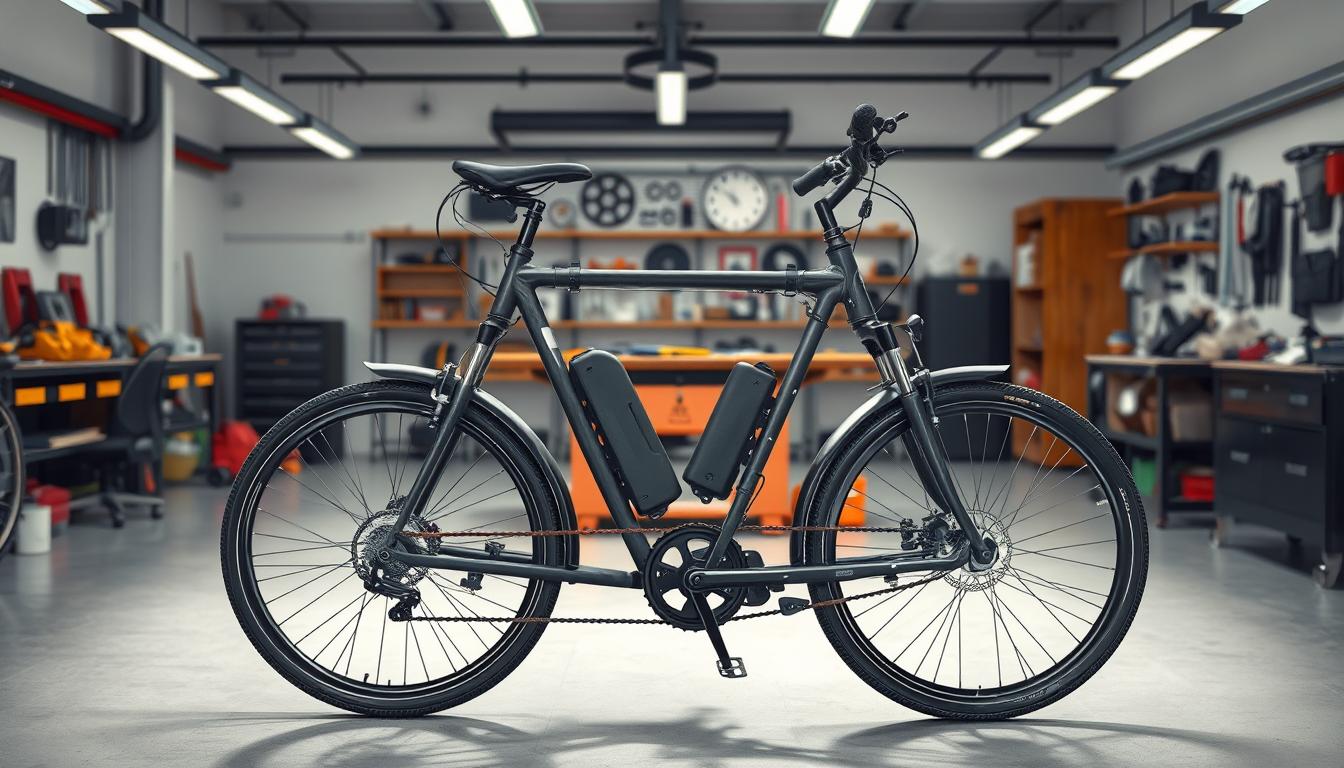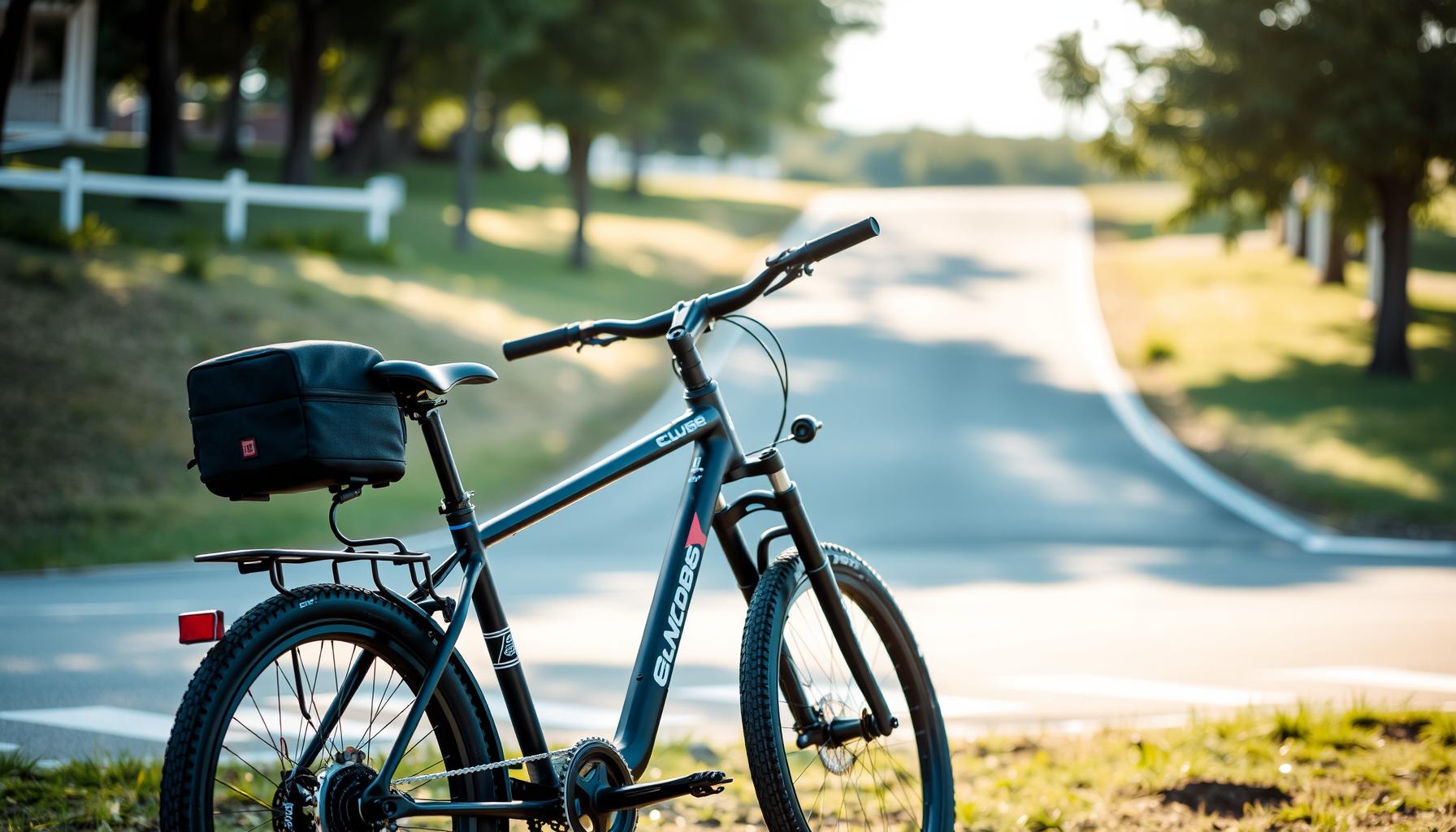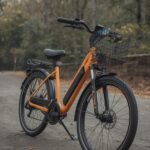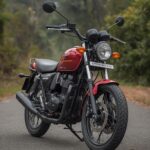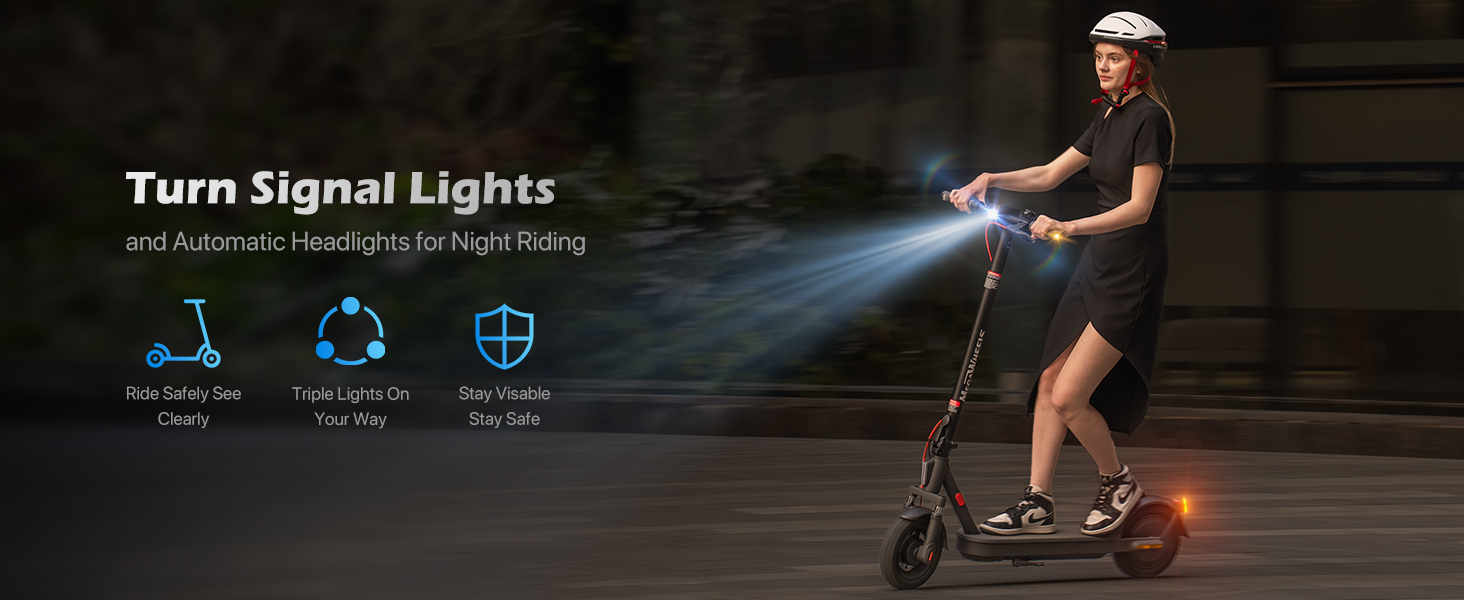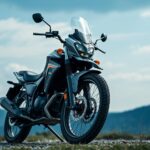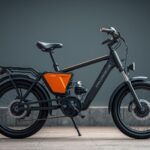Now Reading: Polygon Cisq T6e: A Budget Ebike That Packs a Punch – My Honest Review
-
01
Polygon Cisq T6e: A Budget Ebike That Packs a Punch – My Honest Review
Polygon Cisq T6e: A Budget Ebike That Packs a Punch – My Honest Review

Table of Contents
I used to think e-bikes were just for people who couldn’t handle a “real” bicycle. My idea of cycling was all sweat, burning thighs, and the smug satisfaction of conquering a steep hill with nothing but my own two legs. Then, a friend convinced me to try one. What followed was a journey of unexpected revelations, forever changing my perspective on what cycling could be.
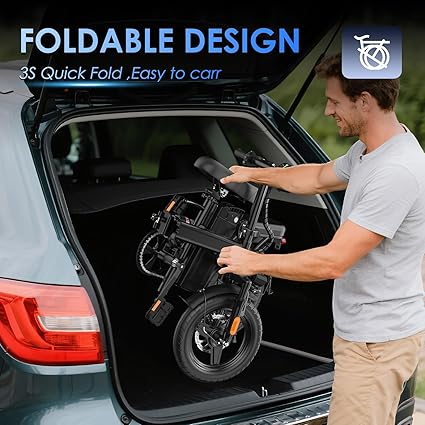
The Polygon Cisq T6e: A Budget Ebike
The Polygon Cisq T6e proves you don’t need to spend a fortune to get a capable, fun electric mountain bike. This mid-drive hardtail borrows smart design choices from pricier models while keeping costs low, making it a solid pick for beginners or budget-conscious riders.
For around $2,500, the T6e packs a reliable Shimano Steps E7000 mid-drive motor and a 504Wh battery enough for 40-50 miles of mixed trail riding. The motor responds smoothly to pedal input thanks to its torque sensor (a feature that adjusts power based on how hard you pedal). Unlike cheaper hub-drive ebikes, this setup feels more natural, especially on climbs.
The bike’s aluminum frame keeps weight manageable at around 50 lbs, and the included components strike a balance between durability and affordability. The 2.8-inch wide tires absorb bumps well, while the Suntour suspension fork handles light trails competently.
But compromises exist. The stock wheels and drivetrain wear faster under motor-assisted strain, as noted in later upgrades. Still, for riders wanting an entry point into e-mtb without breaking the bank, the T6e delivers where it counts: ride quality and simplicity.
Why this bike for the experiment? Its accessible price and no-frills design made it a realistic choice for testing how an average rider might experience ebiking daily. If you’re curious about electric mountain bikes but wary of $5,000+ price tags, the T6e is a convincing first step.
The Upgrade Journey
Upgrading your e-bike isn’t just about power it’s about making it tougher for the way you ride.
The Polygon Cisq T6e is a solid budget e-bike, but its stock parts struggled with rough trails and heavy use. The wheels, forks, and drivetrain took the hardest hits. Constant braking wore out the rotors, and the chain stretched faster than on a standard bike. If you ride hard or commute daily, expect to replace these parts sooner than you would on a non-electric bike.
A stronger wheelset was the first fix. Factory e-bike wheels often use lower-spoke-count designs to save weight, but swapping to a burlier 36-spoke rear wheel prevented constant truing after off-road rides. The fork upgrade mattered just as much a basic coil fork couldn’t handle repeated bumps, so a mid-range air fork smoothed out vibrations and saved arm fatigue.
Drive components also need attention. E-bike motors put extra stress on chains and cassettes, especially if you rely on turbo mode for climbs. A reinforced chain (like Shimano’s E-specific CN-E8000) and a wider-range cassette helped the T6e last longer between repairs. These upgrades aren’t cheap, but they’re cheaper than buying a whole new e-bike after a year of abuse.
The takeaway? Plan for upgrades if you push your e-bike hard. Budget for maintenance like brake pads, chains, and tires they’ll wear 20-30% faster than on a regular bike. Start with wheels and suspension if tackling rough terrain, or prioritize the drivetrain for hill-heavy commutes. Either way, a few smart swaps can turn an entry-level e-bike into a reliable long-term ride.
Upgrading an e-bike like the Polygon Cisq T6e starts with fixing durability weak spots. Even budget-friendly e-bikes often need part swaps to handle rough riding. The motor and battery add stress to frames, wheels, and drivetrains, so reinforcing these areas keeps the bike reliable.
First, the wheels take a beating. Stock rims and hubs on entry-level e-bikes aren’t always built for extra weight or speed. Switching to double-walled alloy rims and thicker spokes prevents bending or cracks, especially off-road. For the Polygon, a stronger wheelset meant fewer stops for truing after rocky trails.
Next, the suspension fork. Stock forks on sub-$2,000 e-bikes often lack adjustability and wear fast under motor-assisted climbs. Upgrading to an air fork with rebound control improves handling and lasts longer. The difference is clear when carving downhill turns or hitting roots at speed.
Drivetrain parts also wear faster on e-bikes. The added torque chews through chains and cassettes quicker than on regular bikes. A mid-range 1×12 groupset (like Shimano Deore) offers smoother shifts and better chain retention, saving money on replacements.
Upgrades don’t have to break the bank. Focus on weak points first stronger wheels, a durable fork, and a reliable drivetrain will make a budget e-bike ride like a premium one. Spend where it counts, and you’ll get more miles with fewer repairs.
Upgrading your e-bike isn’t just about performance it’s about making it last. The Polygon Cisq T6e, like many budget-friendly e-bikes, comes with parts that wear faster under the extra weight and power of electric assist. After just a few rides, weaknesses in the wheels, fork, and drivetrain became obvious.
The first fix was swapping the stock wheels for a sturdier set. E-bikes put more stress on rims and spokes, especially when tackling rough terrain or carrying heavier loads. A reinforced wheelset with double-walled rims and thicker spokes prevents constant truing and breakage. Next, the basic suspension fork was replaced with a more robust model. The extra torque from the motor demands better damping and durability to handle bumps without failing prematurely.
The drivetrain was another weak spot. Stock chains and cassettes on budget e-bikes often wear out quickly under the motor’s constant force. Upgrading to a higher-quality chain and a wider-range cassette not only extends lifespan but also improves shifting smoothness. If you ride often, these changes can save money in the long run by reducing replacement costs.
Upgrades don’t have to be extreme. Even small tweaks like adding puncture-resistant tires or ergonomic grips can make a big difference in ride quality. The key is spotting weak points early and addressing them before they ruin a ride. For the Cisq T6e, these changes turned a problem-prone bike into a reliable companion for daily adventures.
The Ebike Experience: First Impressions
Riding an e-bike shatters the myth that it’s “cheating” instead, it transforms how you ride without replacing pedaling. Many first-time riders worry an electric assist will make them lazy, but the reality is more nuanced. Your legs still do work the motor just helps you ride farther, tackle hills easier, and push through tough terrain without burning out.
Take climbing, for example. On a regular bike, a steep hill might force you into granny gear or even off the saddle. With pedal assist (PAS), you choose how much help you get. Dial it down for a workout, or boost it to cruise uphill without drenching your shirt in sweat. It’s not about skipping effort it’s about controlling it.
Handling also feels surprisingly natural. The motor’s weight sits low, often in the mid-frame, which improves stability. Riders notice quicker turns and more confidence on loose gravel or city streets. Some even report riding more because fatigue doesn’t cut trips short.
But there’s a mental shift too. That initial guilt of “am I still a cyclist?” fades fast. Instead, you focus on the ride whether it’s keeping up with friends, commuting without arriving exhausted, or exploring trails you’d normally avoid. An e-bike doesn’t replace pedaling; it reshapes what’s possible with it.
The biggest surprise? How quickly it feels normal. After a few rides, switching between assist levels becomes second nature, like changing gears. You stop thinking about the motor and just enjoy the ride. That’s the real revelation: e-bikes aren’t a shortcut. They’re a new way to ride.
The Polygon Cisq T6e: A Budget Ebike
The Polygon Cisq T6e is a solid entry-level electric bike that delivers decent performance without breaking the bank. It’s not flashy, but it hits the marks where it counts affordability, simplicity, and a frame sturdy enough for casual trail riding.
This model comes with a basic but reliable 250W rear-hub motor, which won’t win races but helps flatten hills and extend rides. The battery is a 36V 11.6Ah pack, giving most riders around 40–50 miles per charge in eco mode. That’s plenty for weekend adventures or daily commutes. Since it’s a hub motor, maintenance is minimal no complex mid-drive chains or gears to fuss with.
Riders will notice the T6e’s geometry leans toward comfort over aggression. The upright position and wide handlebars make it easy to handle, especially for beginners. Where it struggles is on tough climbs it lacks the torque of pricier mid-drive models, so steep trails will demand extra effort or constant turbo mode, which drains the battery fast.
The stock parts are where Polygon cut costs. The mechanical disc brakes work, but they’re not as sharp as hydraulic ones. The fork is a basic coil spring, not air-sprung, so heavy riders might find it bouncy. A few cheap upgrades (like better tires and a fork swap) can drastically improve the ride.
Despite its quirks, the T6e is a good test bike for anyone curious about e-biking. It won’t replace a high-end model, but it’s a low-risk way to see if motorized riding fits your style. For under $2,000, it’s hard to complain.
If you’re eyeing one, budget an extra $300–$500 for essential upgrades. A sturdier fork, grippier tires, and hydraulic brakes turn this budget bike into a dependable daily rider. Later sections cover those tweaks in detail.
The Polygon Cisq T6e is a solid entry-level e-MTB that balances cost and performance for riders new to electric bikes. It’s not high-end, but it handles well enough to show why so many riders get hooked on pedal-assisted trail riding.
This bike comes with a 250W Shimano E5000 mid-drive motor, offering smooth power delivery without feeling jerky. The lower center of gravity from the frame-integrated battery (360Wh) helps with stability, especially on tight turns. The 27.5\” wheels and basic Suntour suspension fork absorb bumps well enough for light trails, though aggressive riders may crave an upgrade.
Setup takes some work like most budget ebikes, the T6e arrives 85% assembled. You’ll need to attach the front wheel, handlebars, and pedals, then fine-tune the drivetrain. The mechanical disc brakes work but lack the stopping power of hydraulic systems, so steep descents require caution.
Why pick this over pricier models? For under $2,000, it’s a low-risk way to test if an e-MTB suits your riding style. The Shimano Steps system is reliable, and the aluminum frame can handle moderate trail abuse. Just know that rough use will expose its limits like the wheelset bending easily on hard hits or the 8-speed drivetrain struggling under heavy torque.
If you’re curious about e-MTBs but not ready to spend $5K+, the T6e is a practical starting point. Later in this article, we’ll cover how upgrading parts can stretch its capabilities further.
(Next section expands on how this bike performs in real trail conditions both strengths and weaknesses.)
The Polygon Cisq T6e is a solid entry-level eMTB that proves you don’t need to spend a fortune to get a fun, capable electric trail bike. It’s built with practical specs for casual riders, including a Shimano E5000 motor, 100mm travel suspension, and hydraulic disc brakes. The aluminum frame keeps weight reasonable (around 22kg), while the 400Wh battery offers enough power for shorter trail rides or urban commutes.
This bike was chosen for the experiment because it hits a sweet spot affordable but not cheaply made. The mechanical components (like the 9-speed drivetrain) are basic but reliable, and the geometry is stable enough for light off-road use. Setup was straightforward: minimal assembly out of the box, just attach the handlebars and front wheel. Some might want to upgrade the stock tires for aggressive terrain, but they’re fine for gravel paths and mild singletrack.
A few quirks stand out. The motor isn’t the quietest, and the torque sensor (which adjusts assist based on pedaling force) can feel delayed compared to premium e-bikes. But for the price, it’s hard to complain. Riders weighing over 90kg might find the suspension and motor strain on steep climbs, but lighter riders will enjoy zipping around without much fuss.
Polygon nailed the essentials here: a no-nonsense e-bike that lets newcomers experience electric assist without overcomplicating things. If you’re debating between a high-end analog bike and a budget eMTB, this one makes a strong case for going electric.
The Polygon Cisq T6e is a solid entry-level electric mountain bike that proves you don’t need to spend big to get a capable ride. This hardtail e-MTB borrows from Polygon’s proven mountain bike lineup, adding a mid-drive motor and battery without the premium price tag. The model used here was a borrowed test bike, but it quickly showed why budget ebikes are gaining fans.
At its core, the T6e runs a 250W Shimano Steps E5000 motor paired with a 418Wh battery enough for 40-50 miles of mixed trail riding in lower assist modes. The aluminum frame keeps weight reasonable at around 45lbs, and the geometry leans toward stability rather than aggressive racing. Components are where Polygon cut costs: the stock Suntour fork, basic Shimano drivetrain, and alloy wheels work fine for light trails but will show limits under heavy use.
This bike nails the basics for new riders. The motor delivers smooth pedal-assist power (PAS), and the lower center of gravity from the downtube battery makes technical sections easier to handle than analog bikes. Where it struggles is durability the original drivetrain and wheels needed upgrades after just a few months of serious riding. If you’re riding mostly smooth trails or commuting, the T6e is a steal. For aggressive trail use, plan to budget for tougher parts down the line.
What makes it unique is how it bridges the gap between big-box store ebikes and pro-level models. Compare it to a Turbo Levo SL ($6,000+) and you’ll miss the premium suspension and instant torque. But for riders testing the waters, the T6e proves you can get real e-MTB thrills without a second mortgage.
Conclusion
E-bikes are full of surprises. What starts as skepticism often turns into a revelation whether it’s the thrill of conquering rough terrain, the practicality of longer rides, or the unexpected training benefits. The Polygon Cisq T6e proved that even budget e-bikes can deliver fun, but durability upgrades might be necessary for serious riders.
They’re not perfect. Wear and tear speeds up, flow trails demand adjustment, and turbo mode can leave you breathless in ways you didn’t expect. But for commuting, fitness, or pure enjoyment, e-bikes open doors traditional bikes can’t.
So, is one right for you? If extended rides, versatile terrain handling, or efficient training sound appealing, the answer might be yes. But weigh the costs both upfront and long-term.
Ready to give it a try? Borrow one. Test it. Then decide. The best review is your own ride.


